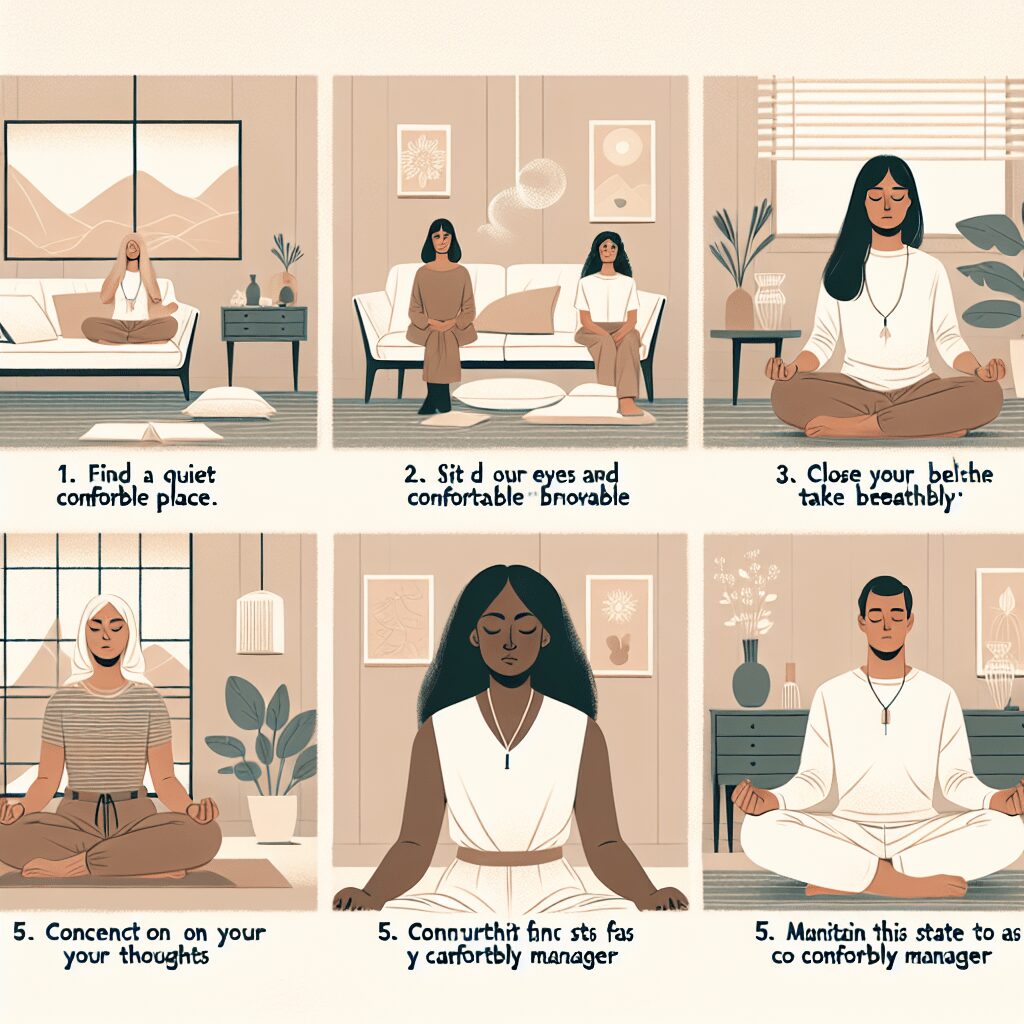
Prioritize your mental well-being daily. Enhance your life by nurturing your mental health with the Smart Meditation app. Break free from stress, alleviate anxiety, and enhance your sleep quality starting today.
How To Help Spouse With Anxiety And Depression?
Unraveling the Knot of Support: Aiding your Spouse through Anxiety and Depression
In the intricate dance of companionship, the steps become particularly convoluted when one partner faces the shadows of anxiety and depression. This duo of mental health challenges can cast a long, chilly shadow over the sunniest of relationships. However, fear not! There’s light at the end of the tunnel, and with a bit of know-how, empathy, and a boatload of patience, you can be the beacon for your spouse amidst these trying times.
Let’s dive into how you can extend your hand, not as a savior, but as a steadfast partner on their journey to better mental wellness.
Building a Sturdy Foundation of Understanding
Educate Yourself: Ignorance isn’t just bliss; it’s the breeding ground for misunderstandings and misinterpretations. Get cracking on reputable sources that shed light on anxiety and depression. Knowledge is power, and in this context, it’s the power to empathize, support, and sometimes, the wisdom to navigate through your spouse’s silent battles.
Listening is an Art: Master it. Sometimes, all your spouse needs is an ear that listens without the rush to fix things. Listen to understand, not to reply. It’s about validating their feelings, showing that you see their struggle, and ensuring them that they’re not alone in this tug of war.
Practical Steps Towards a Brighter Tomorrow
Routine is Key: Encourage a daily routine but keep it flexible. Structure can be a comforting hand to hold for someone dealing with anxiety and depression, offering predictability in a world that seems to be spinning out of their control.
Healthy Living, Happy Living: You’ve heard it a million times, but it’s true. Encourage activities that pump up endorphins: exercise, a walk in the park, or a dance-off in the living room. Don’t forget nourishment—eating well is crucial. Maybe take a cooking class together or plot a veggie garden. It’s about making these activities enjoyable, not a chore.
Seek Professional Help: Encourage (don’t push!) professional help. Therapy can provide invaluable tools and strategies. Offer to help research therapists or support groups. Sometimes, just knowing you’re in their corner can make all the difference.
Be there, but Don’t Forget Self-care: Supporting someone can be draining, physically and emotionally. Remember to recharge your batteries. You can’t pour from an empty cup, after all. Find your support system or engage in activities that rejuvenate you.
Final Thoughts: A Marathon, Not a Sprint
Supporting a spouse with anxiety and depression is akin to running a marathon through hilly terrain. There’ll be ups and downs, but remember, progress is not always linear. Celebrate the small victories, and know that setbacks are not failures; they’re simply part of the journey. Your patience, understanding, and unwavering support can be the guiding light for your spouse, illuminating the path to recovery, bit by bit. Remember, it’s about walking alongside them, not carrying them. Together, step by step, you’ll navigate through the fog towards a brighter, healthier future.





